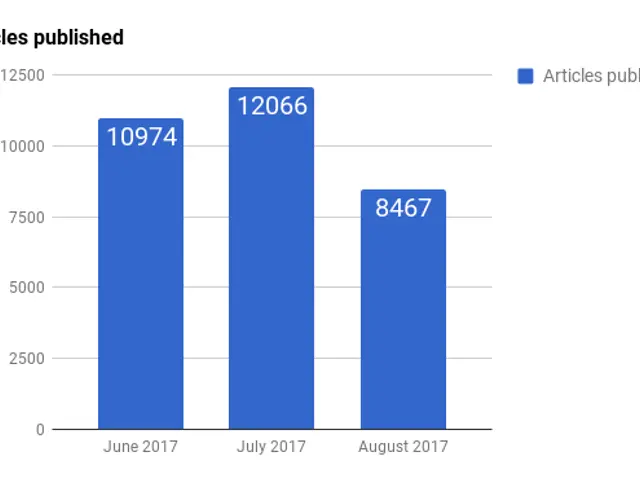New York's Strategy for Governance Over Children's Engagement on Social Networking Sites
New York has taken a significant step towards protecting children online with the signing of the SAFE for Kids Act last June. The law, which is the first of its kind in the country, aims to make social media safer for kids and families by regulating social media companies with users under 18 years old.
The SAFE for Kids Act requires these companies to limit algorithmic feeds and restrict notifications during night hours for users under 18. Social media companies must also offer at least one alternative method for age verification, such as uploading an image or video, using an email or phone number, or using a government ID.
The draft regulations for enforcing the law include rules for confirming a user's age. However, social media companies have leeway in choosing methods to verify a user's age. It's important to note that once a user's age is confirmed, social media companies must delete any information gathered for this purpose or parental consent after its intended use.
The proposed rules for the SAFE for Kids Act do not allow social media companies to proactively request parental consent for access to algorithmic feeds or nighttime notifications. Instead, companies must first receive approval from the child before making any requests of their guardians.
Concerns from privacy advocates have been raised about the risks involved with providing personal information for age verification. Nevertheless, the attorney general, James, stated that the proposed rules will help tackle the youth mental health crisis and make social media safer for kids and families.
Research has shown that social media, particularly feeds that make use of algorithms to provide relevant content to users, can be addictive and result in negative mental health outcomes in children. The regulations apply to social media companies that have user-generated content and in which 20% of a user's time on the app or website is spent on the feed.
The rulemaking process is lengthy, with comments on the proposed regulations open until Dec. 1. Once the public comment period closes, James' office will have another year to release the final rules. After the final rules are released, the law will formally go into effect 180 days later, which means New York may need to wait until mid-2027 to see the impacts of the new law.
It's worth noting that TikTok would likely fall under these regulations, while a site like GoodReads probably would not. The SAFE for Kids Act serves as a testing ground for the effectiveness of the statute and the ability of the attorney general to ensure compliance. As the first state to enact such a law, New York is moving towards enacting a 2024 law to protect children online.







